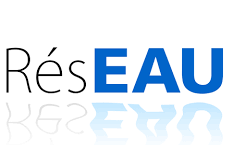Federal Councillor Ignazio Cassis attends the first Conference on the Italian Language
Roma, 18.11.2025 — At the invitation of the vice-president of the Council of Ministers of the Republic of Italy, Antonio Tajani, Federal Councillor Ignazio Cassis, the head of the FDFA, represented Switzerland at the first Conference on the Italian Language in Rome on 18 November 2025. The event brought together countries and communities linked by the Italian language and saw the adoption of the founding declaration of the Community of Italian Speakers. The conference was also an opportunity for Mr Cassis to meet ministers from various countries, including Romania, Kosovo, San Marino, Slovenia and Somalia as well as the director general of the International Atomic Energy Agency, Rafael Mariano Grossi.
The Conference on the Italian Language, organised by the Italian Ministry of Foreign Affairs and International Cooperation in collaboration with the Dante Alighieri Society, brought together representatives from countries where Italian is an official language or Italians have historically been a minority, as well as states and communities that share a living link with Italian language and culture. The declaration officially establishing the new Community of Italian Speakers was adopted in Rome by 19 countries, including Switzerland, which was invited to co-chair this first conference. The aim is to promote political dialogue, international cooperation and cultural, scientific and economic exchanges between the participants. " Today, we are drawing the outlines of a new home, the home of Italianità. The goal is that the Community of Italian Speakers founded today will grow and become another instrument for dialogue and proximity,” said Cassis in his Speech .
Exchange platforms between Switzerland and Italy
For Switzerland, the Community of Italian Speakers also builds on the strong relations between Switzerland and Italy in many areas. In addition to a common language, Switzerland and Italy share almost 800km of border, the longest of both countries, as well as significant economic and scientific cooperation and strong human and cultural ties. In recent years, bilateral cooperation has been further strengthened through frequent contacts between Mr Cassis and Mr Tajani. For example, Mr Cassis attended the conference of Italian ambassadors held in Rome in December 2024, and Mr Tajani was in turn invited to Bern in August 2025 to meet the Swiss diplomatic corps and bring to Switzerland the perspective of its neighbouring country on various current issues.
In 2026, new initiatives are planned to enhance relations between the two countries. From January, the Palazzo Trevisan degli Ulivi in Venice – which is now under the direction of the FDFA – will become a platform dedicated to culture, innovation and sustainability. At the Milano Cortina 2026 Winter Olympic and Paralympic Games, Switzerland will be present with its own House of Switzerland, which will welcome visitors from Italy and around the world by presenting the various forms of Switzerland's commitment to the Alpine region.
Meetings with countries linked to the Italian language
At the conference, Mr Cassis met with representatives from various countries, including the minister of foreign affairs of Romania, Oana-Silvia Toiu, the deputy prime minister and minister of foreign affairs and diaspora of the Republic of Kosovo, Donika Gervalla Schwarz, the secretary of state for foreign affairs of San Marino, Luca Beccari, the deputy prime minister and minister for Slovenes abroad of the Republic of Slovenia, Matej Arčon, and Somalia's minister of foreign affairs and cooperation, Abdisalam Abdi Ali. He then had the opportunity to talk with the director general of the IAEA, Rafael Mariano Grossi.
During the talks, Mr Cassis discussed among other things matters regarding EU relations and recalled Switzerland's commitment to security and stability in Europe, strengthened by its chairpersonship of the OSCE in 2026. Attention to minorities will also be a feature of Switzerland's work in this organisation.
During the exchanges held in Rome, Mr Cassis emphasised the importance of cultural diversity, recalling the example of the ‘Emna da la lingua rumantscha’, the week dedicated to the Romansh language created and promoted by the FDFA in cooperation with the Canton of Graubünden and the Lia Rumantscha, an organisation that promotes Romansh language usage and study. The initiative, which in 2025 took place in Romania, is scheduled to be held in Slovenia in 2026. “Dealing with our languages and cultures, even the smallest, means weaving partnerships based on dialogue, respect and inclusion. It is an investment in cohesion and stability in Europe,” he said. This is also the backdrop to Mr Cassis' working trip to Africa on 20 and 21 November, during which he will attend the 46th session of the Francophonie Ministerial Conference in Kigali.
